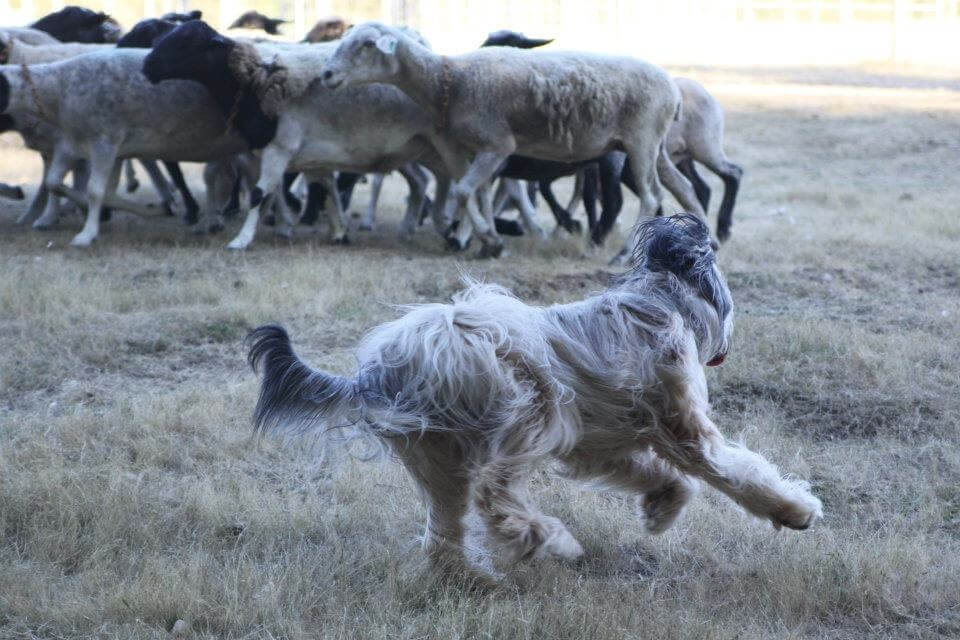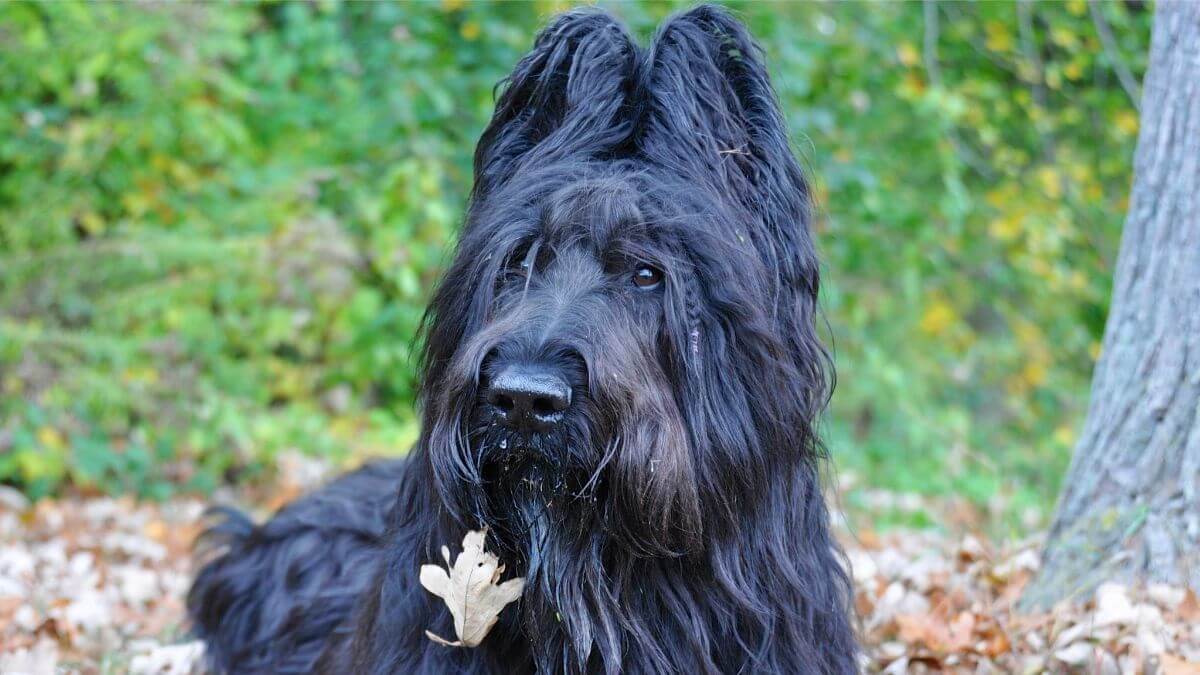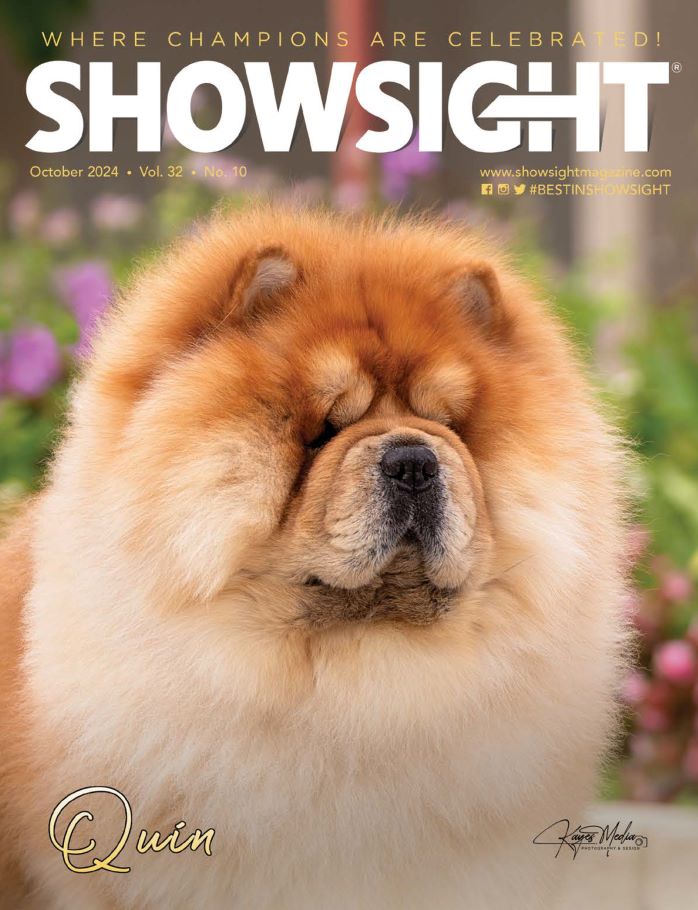This article was originally published in Showsight Magazine, November 2013 issue.
Briard Temperament
The Briard temperament is a surprise to many at first contact with the breed. They are intensely affectionate to their loved ones, devoted to a fault and exclusive in their loyalty. Most Briards have strong opinions and are fairly assertive about their needs and expectations, requiring a clear and constant leader with unwavering boundaries. As expected when categorized as a herding/guarding breed, the Briard is selective, discriminant, aware, reserved with strangers, job oriented and high drive.
The breed is high maintenance by their basic grooming needs as any coated dog, but even higher maintenance because of their socialization needs. This is a breed whose default setting is to know and love the familiar—their family, their friends… and no one and nothing else. The needs of the average urban lifestyle demand a more extroverted and social animal, making the socializing process a necessity to developing a dog who is a good citizen in the world. Good Briard raising practices include constant exposure out of the home and away from the familiar surroundings to create contact with constantly changing situations and new people. This is a process which needs constant reinforcement for the first year or more of a Briard’s life.
Briard social behavior is fraught with potential for wonderfully positive things and equally negative things. Briards are warm, kind, and fuzzy therapy dogs for the needs of hospitalized and shut-in individuals. The breed’s natural touchy/feely tendencies provide soothing tactile therapy to those in need of a good dose of affection.

However, the flip side can be coupling a dog with a discriminant nature and high prey drive, and exposing that individual to dog parks or doggy daycare. The recipe for a bad reputation is waiting to happen. Add in a dose of an owner or handler not paying attention or exercising clear-cut impulse control rules… voilà… dog fight, or dog chase… or bullying… or recipient of bullying reacting extremely emotional… sometimes igniting the prey reaction of the Briard even more.
Here is where the subjects of dog parks and doggy daycare enter the picture. A relatively new subject for dog owners, but of realistic concerns to Briard owners in keeping their Briards safe and not adding to the statistics of BBB, “Bad Briard Behavior”. Many Briard owners recognize that offering their Briard the chance to run wildly in a dog park with others can often add a spark to the already electric social dynamic of multiple strange canines gathering to interact while their owners pay half attention. It becomes a bad habit to introduce and a bad precedent to set.
Likewise in doggy daycare settings, if rigidly clear management is not applied and half attention paid… BBB, “bad Briard behavior” can rear its ugly head. The more sophisticated and educated of dog people avoid such dog/dog/dog settings to limit exposure to bad behavior learning opportunities and the liability of the blame.
In their best form, the Briard is a remarkably easy and quiet house dog with a keen and developed sense of humor all evident from an early age. They are smart and engaged, busy and involved when appropriate and quietly content to lay in a heap on their loved one’s feet for the rest of their day.










